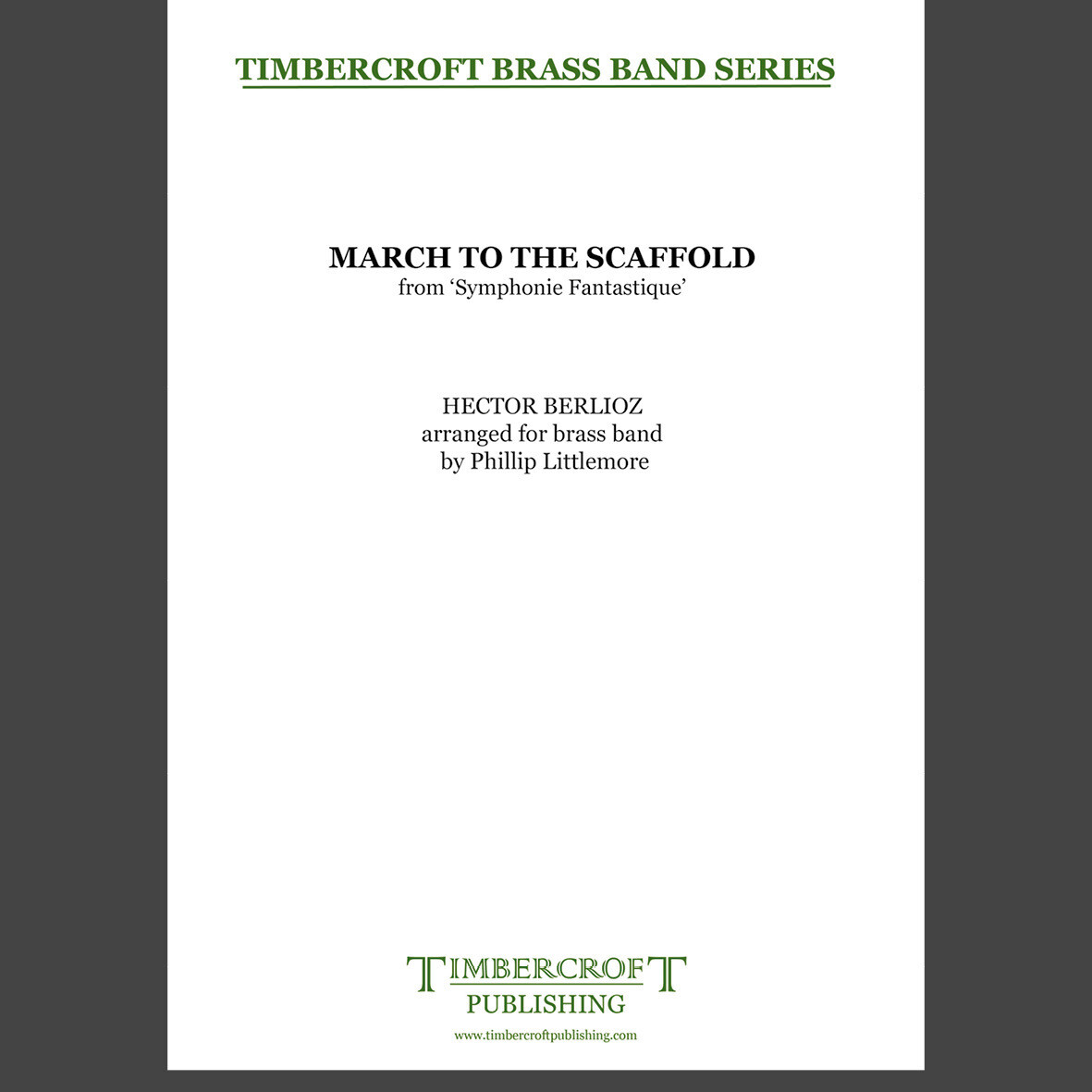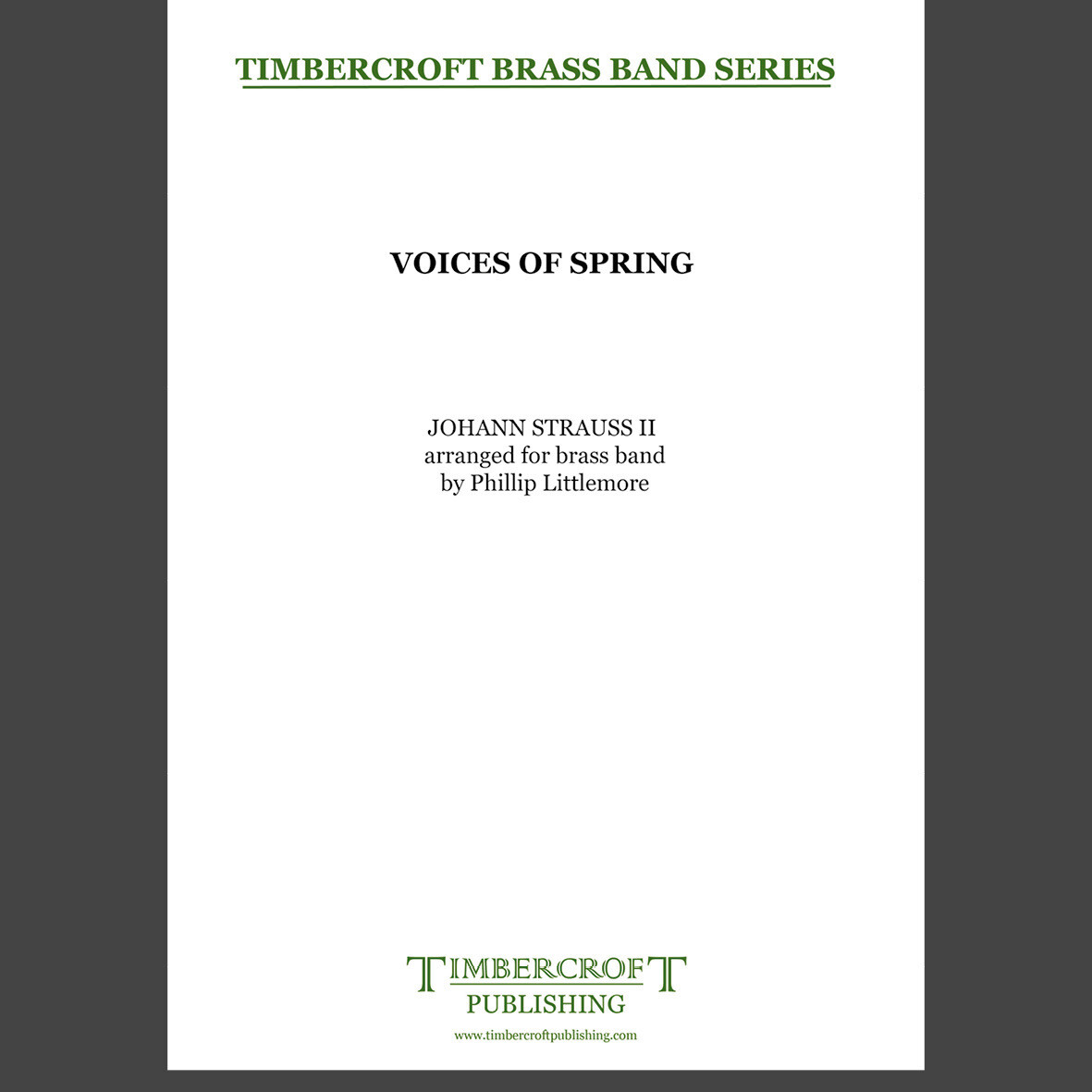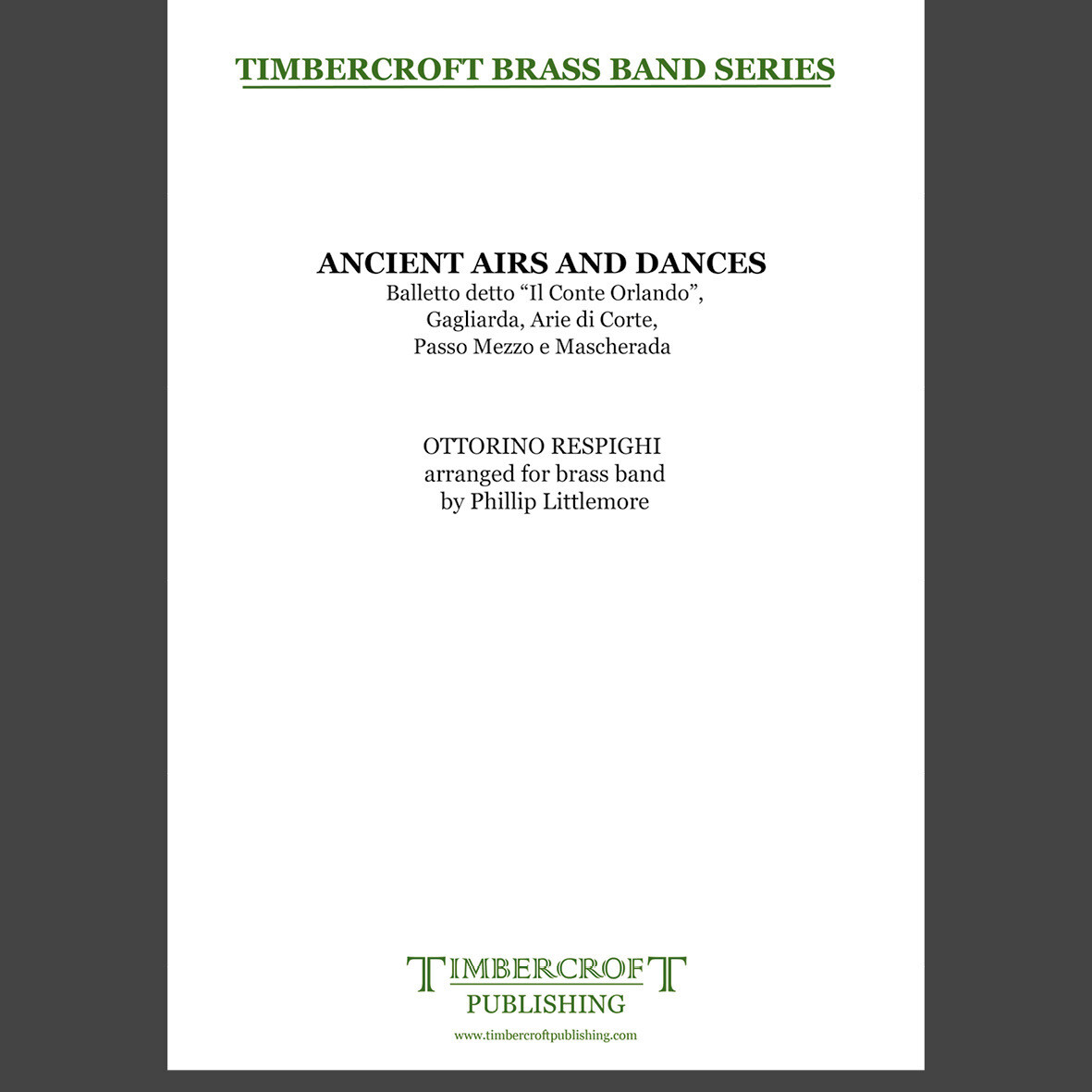Results
-
 £109.99
£109.99The Baron of Dedem - Carl Wittrock
The Baron of Dedem once ruled over a large plot of peat in the Netherlands. 1809 saw the beginning of the construction of a canal to transport this fuel, so important in those days. The canal was named after the Baron, as was the nearby village. This work describes the establishment of the canal and the village, but also life in the region nowadays, thereby setting a slice of Dutch life to music.
Estimated dispatch 5-14 working days
-
 £57.50
£57.50Jeanie with the light brown hair - Stephen Foster
One of the most beautiful songs ever written. Philip Sparke's sumptuous arrangement of this Stephen Foster classic will make a perfect item to bring a few minutes of peace and calm tranquillity to any concert. The lush harmonies, so characteristic of Philip Sparke's arranging, are augmented with exquisite solo figures for cornet and flugel horn. Once you have played this you will want it on every concert programme.
Estimated dispatch 5-14 working days
-
 £68.99
£68.99Trumpeter's Lullaby - Leroy Anderson
Leroy Anderson is part of American cultural heritage and he is often compared to such masters as Gershwin and Copland. Trumpeter's Lullaby was written for The Boston Pops Orchestra of which he was the conductor. This new arrangement for brass band gives your three cornet soloists a chance to 'take to the fore' in a variety of up-tempo jazz styles. Once performed this item will become a favourite that you will use time and time again.
Estimated dispatch 5-14 working days
-
 £102.99
£102.99The Seventh Night of July - Itaru Sakai
In Japan, July the 7th is a holiday known as Tanabata, for which large celebrations are held throughout the country. The holiday is based on a legend about a young man and a young woman who are separated by the Milky Way and can only see each other once a year on this night. The Seventh Night of July is Itaru Sakai's musical interpretation of this romantic legend. The flugel horn and euphonium solos during the middle movement represent the two main themes from the legend.
Estimated dispatch 5-14 working days
-
 £35.00
£35.00March to the Scaffold - Hector Berlioz arr. Phillip Littlemore
The March to the Scaffold is the fourth of five movements from Hector Berlioz's Symphonie Fantastique. The symphony tells the story of a troubled young man and his quest to find his true love. This true love is depicted in the music by a melody known as a idee fixe (fixed idea) and appears in every movement.The fourth movement takes on a nightmarish character as having taken opium, the young man dreams that he has killed his true love and is about to be executed for his crime. The music is an unrelenting forced march to the scaffold. The idee fixe appears only once in this movement, as a sudden reminiscence just before the guillotine strikes the young man's head before the movement comes to an end with a perversely joyous conclusion.Duration: 4'30"Difficulty: 3rd Section and above
Estimated dispatch 5-7 working days
-
 £35.00
£35.00Voices of Spring - Johann Strauss II arr. Phillip Littlemore
Voices of Spring is one of the younger Strauss' later waltzes, and was written quite a few years later than most of his other great works. It is unusual in that it was introduced not as an instrumental work, but as a vehicle for a coloratura soprano (coloratura meaning prone to elaborate ornamentation). The worked dropped out of the repertoire fairly quickly only to emerge as one of the all-time classics once in orchestral form. It is a staple of the concerts by Andre Rieu and his orchestra.Duration: 3'45"Difficulty: 3rd Section and above
Estimated dispatch 5-7 working days
-
 £65.00
£65.00Ancient Airs and Dances - Ottorino Respighi arr. Phillip Littlemore
Ancient Airs and Dances is a set of three orchestral suites written in 1917, 1924 and 1932 respectively. In each, Respighi borrows melodic material from the 16th and 17th centuries, and then applies his own distinct voice to create something at once new and old. This arrangement takes four separate movements from two of the three sets. Balletto detto "Il Conte Orlando" by Simone Molinaro, was a popular piece from the beginning of the 17th century. Its noble rhythmic gestures in the opening and closing sections are answered by a more reflective mood in the middle. Gagliarda, by Vincenzo Galilei (father of the famous astronomer) was originally called Polymnia, after one of the muses of song. Arie di Corte (Courtly Airs), is based on a set of songs by Jean-Baptiste Besard, where sprightlier dances are enveloped by a stately dance. The finale is a clever alternation of two anonymous dances of the late 16th century. There are several variations on a passa-mezzo with interjections of a mascherada. The suite arrives at a brilliant finish with the mascherada's fanfare theme.A recording of this work can be found here: Ancient Airs and Dances.Duration: c. 9'30"Grade: 4th Section and above
Estimated dispatch 5-7 working days
